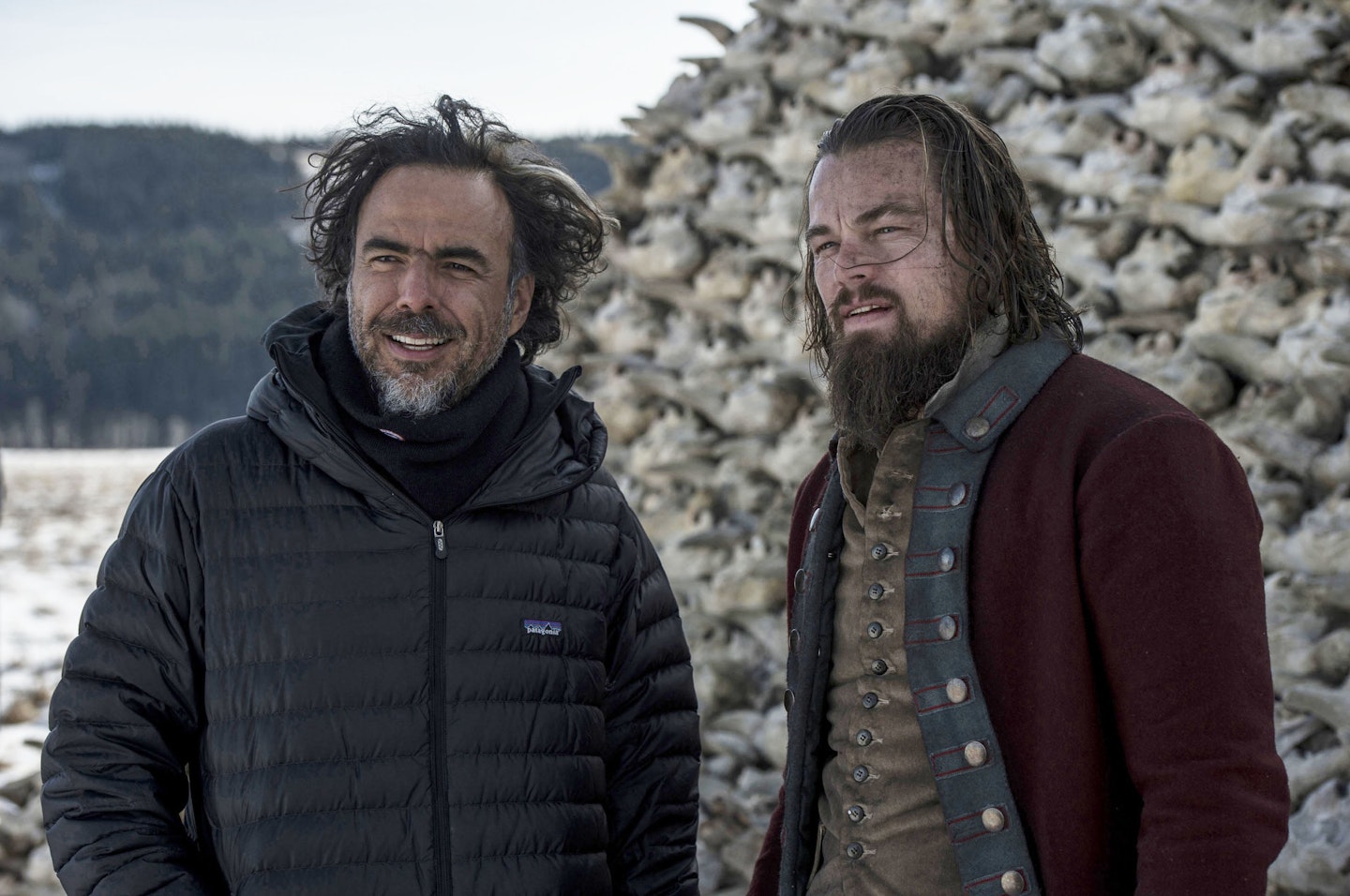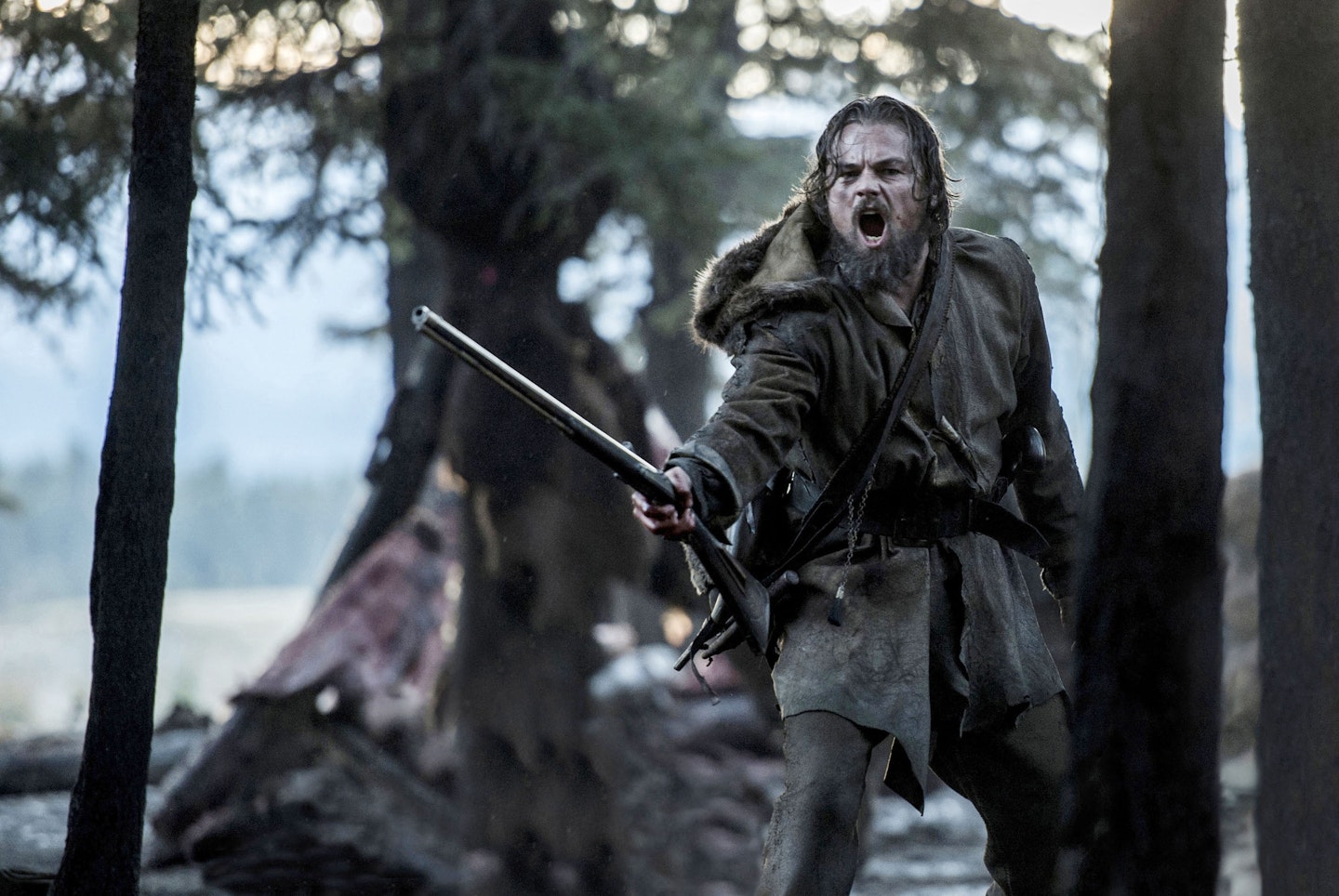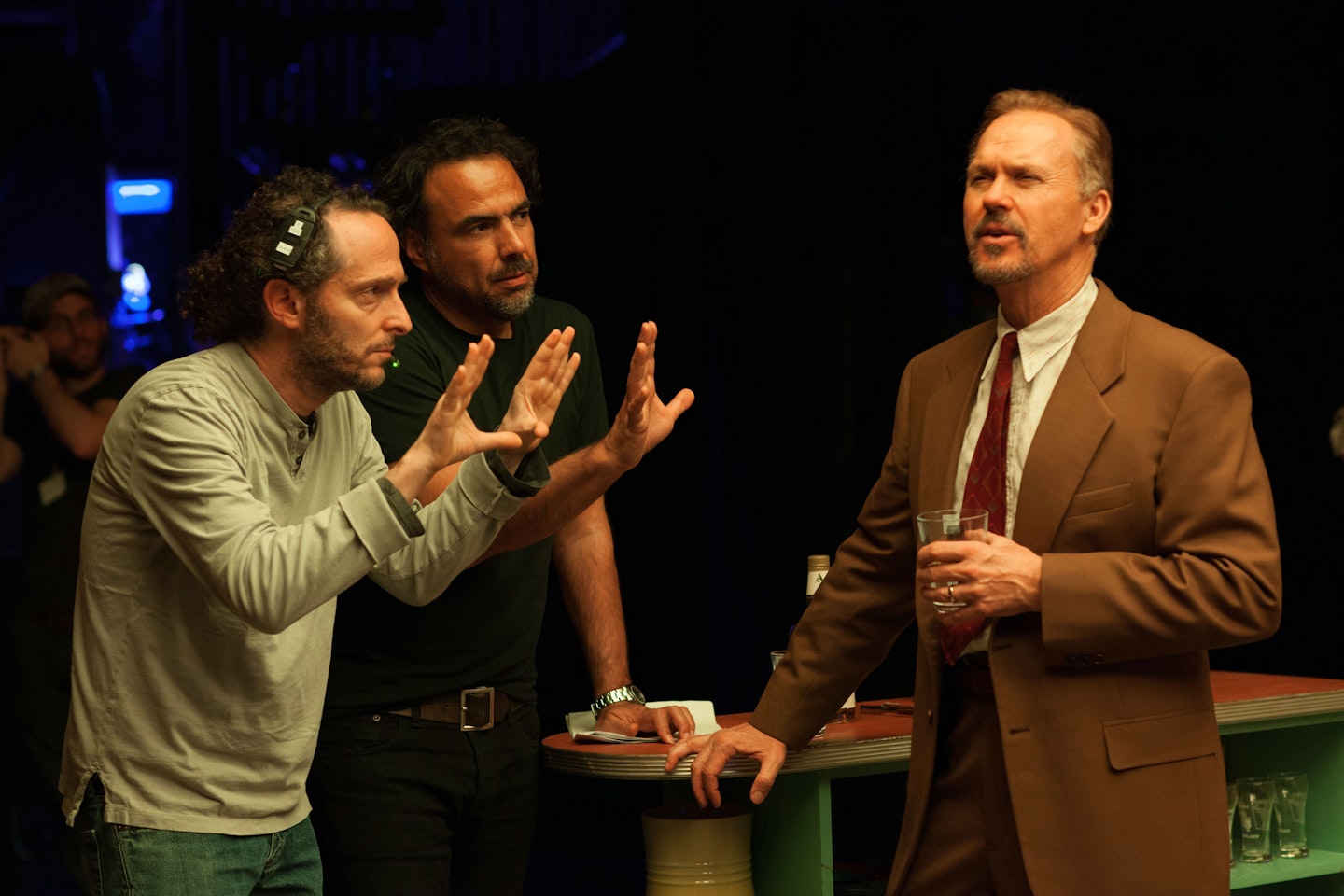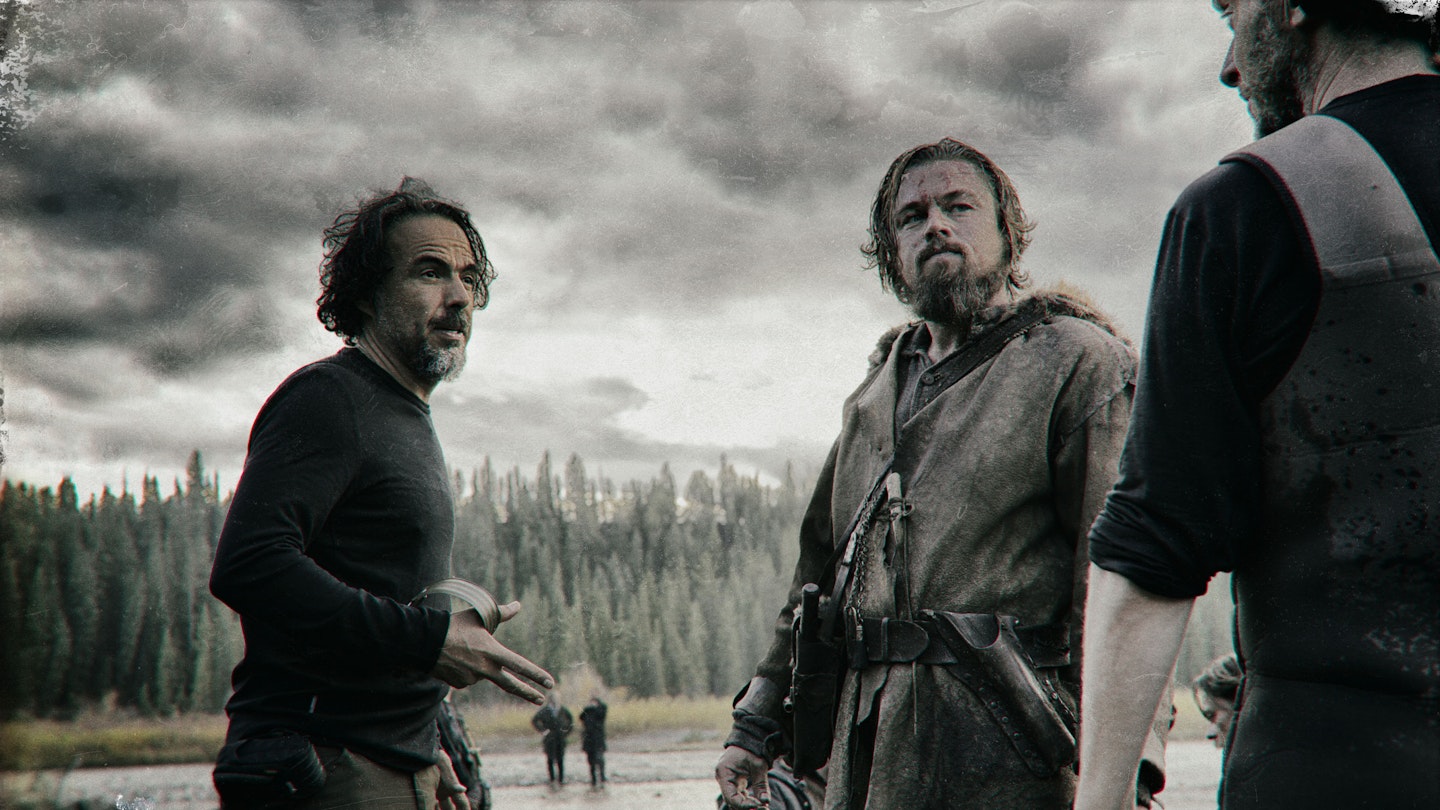It's the day of the Golden Globe nominations and Alejandro G. Iñárritu's latest labour of love has just collected the first of a small hoard of awards nods. The Mexican, hastily typing out a thank-you statement in a Claridge's corridor, claims to be exhausted by The Revenant's famously gruelling nine-month shoo, but to Empire's eyes he still seems plenty peppy for all the cold, wet and rampaging Arikara warriors he's just presided over. Pushed, he says his next project will involve disappearing for "a very, very large number of years". "I'm exhausted," he grins. Not so exhausted he couldn't pull back the icy curtain on his survival epic, talk through the film's inspirations and share what Birdman's Riggan would have made of it all.
You've now made Amores Perros, 21 Grams and Babel - an informal tryptych about death - followed by Biutiful and Birdman. Where does The Revenant fit into your filmography as a whole?
I would say there's a constant theme in my films: the filial relationship between father and son. It comes to me as I'm writing the script and I can see it as the main element that conforms my work. At the heart of The Revenant, besides being a survival adventure story, is the relation between (Leonardo DiCaprio's) Hugh Glass and his son, who's a mixed-race kid he's trying to protect and [help] survive on such a tough journey.
You've been after Leonardo DiCaprio for the role for a number of years. What was it specifically about him that made him right to play Hugh Glass?
It's always been my desire to work with him. I'm a big fan of his since his first film, which I thought was incredible in.
You've been following him for that long?
Yeah. I loved What's Eating Gilbert Grape, for example. He's a wonderful actor and the perfect choice for this film. He was very excited and committed to it. I'm so thrilled because I got to witness his magic work, and to see it being recognised makes me very happy.
But this was originally conceived before Birdman and then Leo had to go and make The Wolf Of Wall Street. It's fair to say you wouldn't have contemplated making it without him?
Yes, it's something we were cooking together but thankfully when he got [The Wolf Of Wall Street], I got Birdman and then we did the film when it actually had to happen.
You found a number of your cast in the British isles - Ireland in the case of Domhnall Gleeson - with Will Poulter and Tom Hardy in key roles. Was that just happenstance or is there something British-trained actors brought to this?
Well, UK actors are cheaper than Americans (laughs). No, I love most British actors. There's a great tradition of acting here, something very powerful and convincing. And honestly, in that time (The Revenant is set in the 18th century) the United States was full of Irish and a lot of English people, so it was a great opportunity not only to be truthful to that but to work with Tom Hardy was one of my goals and privileges. He's sharp as hell, so good, and Will Poulter and Domhnall, they couldn't be better. It was a great experience.
It was a famously arduous shoot. Were you looking for other qualities from your cast aside from their acting chops?
Yeah, the intelligence. When you meet Tom Hardy you can feel that the guy has very profound emotional baggage, an interior life that is very complex and deep and he's full of contradictions, like all great human beings. Obviously the craft that he has... he's not improvising; he's a craftman guy. And Leo or Domhnall are the same. I'm fixed on what is behind the eyes of the actors beyond the craft. It's about the interior life and the depth that they feel, because if you don't have something to say as a person no matter how [much] craft you [have], you will be empty. These are people who are fully alive, intellectual people who are interesting to play.

Were you looking for a bit of Bear Grylls in them?
(Quizzically) Bear Grylls?
He's an outdoor survival expert on TV.
Some of them - not all - were brave enough and endured real physical challenging rough conditions. The experience was not enjoyable but it was definitely rewarding, once you'd finished and solve so many problems and had the resilience to go through such a long time being at big altitudes and low temperatures. Uncomfortable conditions every single day. If you endure that and do it right, there's a very fulfilling kind of emotion. All of them had a camaderie that I felt very proud of on this movie.
How would Birdman's Riggan have coped on The Revenant? He would have said, 'What am I fucking doing in this shitty hole?'
How would Riggan from Birdman have coped on the set of this movie?
(Chuckles) He would have said, 'What am I fucking doing in this shitty hole?' That was the question of my Birdman in this moment. I was not in underwear, I was in a good jacket, but no matter what the question was the same: 'How did we arrive here?'
Shooting in sequence is painful logistically...
Logistically, yes, but it's super-nice to shoot it in sequence because the actors are completely informed and they don't have to put together the puzzle of how their character will [behave] two months after, you know? It's a much easier way to do it, not for the production but for the creative side.
So it was a decision for the actors' sake?
For the actors and for me - for both. For the creative process, there's a huge benefit. It's a huge impact in terms of pain and budget to the production but that has to serve the other. The creative merits of the film are the ones on which it should be judged, not how easily and cheaply you made it. Those are good things - I'm not criticising - but that's not the real merit of the film, it's about how good it can be. Everything should be subordinated to that if possible, but smartly not irresponsibly.

Tell me about the opening battle sequence. It features a spectacular pass-the-parcel shot in which the point-of-view passes from one character to another during the fray. Did you and (DP) Chivo Lubezki have a specific name for it?
The most important thing was to get people into the shoes of each of the main characters, starting with Leo and then shifting to the Arikara chief and then to Tom Hardy and then I shift it to a historical point of view, and then all the trappers and then the aftermath of the native American people in the aftermath. It was how I introduced the main characters in a long take that submerges them in a sensorial, emotional and epic kind of scale. It was a very ambitious complex scene to accomplish, but I'm very happy about it. I think people will experience something cinematic I think this is exactly when cinema screens were invented. That's why this film should never be seen in a iPad or iPhone, because it would be a crime (laughs).
Really?
I think so. It'd be like seeing a huge Goya or Velázquez or Caravaggio and then buying the postcard and saying, 'This is beautiful'. To see a postcard is not to contemplate a four or five metre frame. To discover [The Revenant] on iPad or iPhone is to see a postcard of this film.
You spoke to Werner Herzog about preparing for the conditions on set. Has he since seen the film?
I don't know, I haven't talked to him. I'm very keen to know what he thinks. We were in Telluride and I asked him what he thought about the weather and he said, 'There's no bad weather only bad clothes and a bad state of mind.'
Of course, he made Grizzly Man. Did you have any conversations about bears?
I asked him what he heard in those headphones. He didn't want to tell me but he kind of explained what he'd heard in those headphones but he told me and it's horrible. To make that bear scene I did my research on every level and it's exactly how it happened.
To discover [The Revenant] on iPad or iPhone is to see a postcard of this film.
You travelled to the Oscars for Birdman during the shoot for The Revenant. How strange was that experience?
I had a great time. I was very present that night because it was meaningful to celebrate with the cast and my family. In a way, it's very uncomfortable to go and speak to so many people, because it's not what I do, and you have to thank so many people in such a short space of time. I was shooting [The Revenant] in Calgary and I went back the next day which was really healthy because it didn't allow me to be masturbating myself with awards, I was just submerged in my work which was very healthy for my ego.

You'd joked about wearing Michael Keaton's tighty-whiteys to the Oscars last year. If you're nominated again will you be wearing Leo's bearskin this time around?
I will be much more sexy this time (laughs).
Is it too early to ask you what's next for you?
No, I will disappear from planet Earth for a very, very large number of years because I'm exhausted. Normally I take two or three years to make a film so it'll be a natural pause for me I need to get back to my ordinary life and catch up with a lot of shit on a personal level and just live life which I like much more than cinema. My life is richer and more interesting in some ways and I can't wait to get back to that and enjoy it.
Do you have some films you want to watch up on?
Almost all and I feel pretty bad about it because I'm dying to see what else is out there this year.
Have you seen Mad Max with your Revenant star Tom Hardy?
I have, a long time ago. It was very visually impressive, super-impressive.
The Revenant is set before the Western period, but were there any Westerns that inspired you for this movie?
To be very honest, no. I enjoy Westerns but other films inspires me more. I was inspired by Andrei Rublev from Tarkovsky, one of my favourite films of all time, and Dersu Uzala from Kurosawa. Also, Herzog films - Fitzcarraldo and Aguirre - and Apocalypse Now, or literature like Jack London or [Joseph] Conrad or [William] Faulkner. My takes on this film was not in the genre because I don't think my film plays in the genre of Westerns. As you say, these events took place before the Western - (Western explorers in 1803) Lewis and Clark had crossed to the West but there was no gold and no oil and no fever of the West - so it wasn't my intention to be inspired by that genre.
The Revenant is out in UK cinemas on January 15. Read Empire's review here. [An edited version of this interview appeared in the Empire podcast](
http://www.empireonline.com/movies/news/empire-podcast-194-domhnall-gleeson-alejandro-gonzlez-rritu/).
